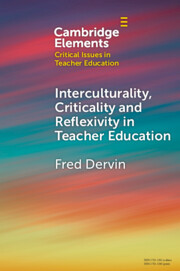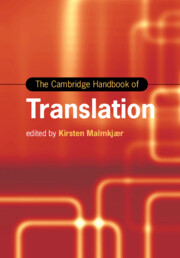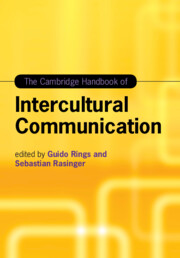Refine search
Actions for selected content:
15 results
Indigenous archaeology in Latin America. Towards an engaged, activist and intercultural archaeology
-
- Journal:
- Archaeological Dialogues / Volume 31 / Issue 1 / June 2024
- Published online by Cambridge University Press:
- 23 October 2025, pp. 38-42
-
- Article
-
- You have access
- Open access
- HTML
- Export citation
Indigenous archaeology in Latin America. Towards an engaged, activist and intercultural archaeology
-
- Journal:
- Archaeological Dialogues / Volume 31 / Issue 1 / June 2024
- Published online by Cambridge University Press:
- 26 September 2025, pp. 1-19
-
- Article
-
- You have access
- Open access
- HTML
- Export citation
Do the humanities humanize?
- Part of
-
- Journal:
- Public Humanities / Volume 1 / 2025
- Published online by Cambridge University Press:
- 01 September 2025, e127
-
- Article
-
- You have access
- Open access
- HTML
- Export citation
19 - Digital Media and Interculturality
- from Part V - Practice
-
-
- Book:
- The Cambridge Handbook of Technology in Language Teaching and Learning
- Published online:
- 15 June 2025
- Print publication:
- 26 June 2025, pp 316-331
-
- Chapter
- Export citation
Chapter 16 - Conflict and Care: Edna O’Brien’s Girl, Colum McCann’s Apeirogon, and the Limits of Interculturality
- from Part IV - Transnational Futures
-
-
- Book:
- Transnationalism in Irish Literature and Culture
- Published online:
- 13 November 2024
- Print publication:
- 14 November 2024, pp 300-316
-
- Chapter
- Export citation

Interculturality, Criticality and Reflexivity in Teacher Education
-
- Published online:
- 17 February 2023
- Print publication:
- 09 March 2023
-
- Element
- Export citation
Procesos de institucionalización de la investigación indígena: Un abordaje comparado
- Part of
-
- Journal:
- Latin American Research Review / Volume 58 / Issue 1 / March 2023
- Published online by Cambridge University Press:
- 06 December 2022, pp. 32-50
-
- Article
-
- You have access
- Open access
- HTML
- Export citation
1 - Post-Gricean Pragmatics for Intercultural Communication
- from Part I - Theoretical Foundation
-
-
- Book:
- The Cambridge Handbook of Intercultural Pragmatics
- Published online:
- 29 September 2022
- Print publication:
- 20 October 2022, pp 11-39
-
- Chapter
- Export citation

The Cambridge Handbook of Translation
-
- Published online:
- 10 March 2022
- Print publication:
- 17 March 2022
14 - Culture and Conscience in the Thought of Joseph Ratzinger, Pope Benedict XVI
- from Part II - Conscience According to Major Figures and Traditions
-
-
- Book:
- Christianity and the Laws of Conscience
- Published online:
- 12 June 2021
- Print publication:
- 24 June 2021, pp 265-284
-
- Chapter
- Export citation
4 - Interculturality or Transculturality?
- from Part I - Introducing Intercultural Communication
-
-
- Book:
- The Cambridge Handbook of Intercultural Communication
- Published online:
- 18 February 2020
- Print publication:
- 23 April 2020, pp 68-82
-
- Chapter
- Export citation
30 - Intercultural Emblems of Violence in the Spanish Colonisation of the Americas
- from Part VII - Representations and Constructions of Violence
-
-
- Book:
- The Cambridge World History of Violence
- Published online:
- 13 March 2020
- Print publication:
- 26 March 2020, pp 591-611
-
- Chapter
- Export citation

The Cambridge Handbook of Intercultural Communication
-
- Published online:
- 18 February 2020
- Print publication:
- 23 April 2020
Between Choice and Obligation: An Exploratory Assessment of Forced Marriage Problems and Policies among Migrants in the United States
-
- Journal:
- Social Policy and Society / Volume 18 / Issue 1 / January 2019
- Published online by Cambridge University Press:
- 02 November 2017, pp. 19-36
- Print publication:
- January 2019
-
- Article
-
- You have access
- HTML
- Export citation
Paulus Oecumenicus: Interculturality in the Shaping of Paul's Theology*
-
- Journal:
- New Testament Studies / Volume 55 / Issue 2 / April 2009
- Published online by Cambridge University Press:
- 10 March 2009, pp. 121-143
- Print publication:
- April 2009
-
- Article
- Export citation
